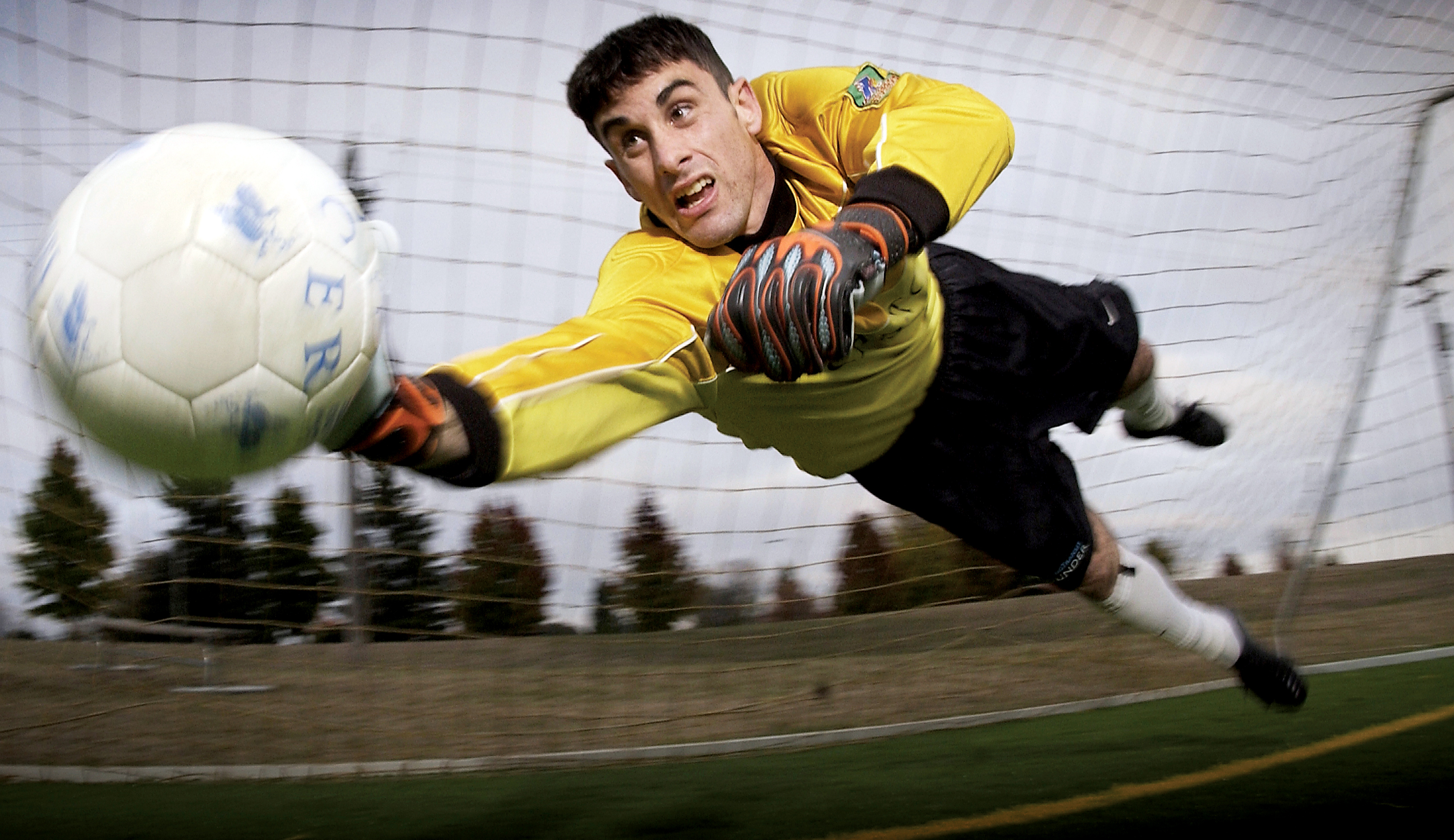Before I start ... a shout out to Kevin Muldoon, former Canadian Keeper Coach who lectured at three of my licensing courses. A great resource, a seasoned coach, a true gentleman and now enshrined on his own in the Canadian Soccer Hall of Fame.
OK.
I have a major weakness as a coach and that is trying to coach a team with a goalkeeper who can't play the ball from their feet. I am reluctant to make all of the concessions that I need to make to compensate for that. Since Day 1 of coaching, my GK had to be ready to play the ball. From the goalkeeper's point of view, I am not easy to play for as I expect you to be a willing member of my 11.
Your team is playing 11v11, 9v9, 7v7 or 5v5. That numbers includes your goalkeeper and therein should lie your message. Teams need to stop treating their GK like an immobile, ball punting shot stopper and practice dummy.
"The GK ... Don't let that tactically important
position go to waste."
I am learning slowly that a lot of coaches are uncomfortable having the ball played back to the keeper. Playing the ball back to my own keeper has been coached to me since I was 13 years old.
Why do coaches shy away? Is it the fear of the own-goal on a messed up play, or the ball being intercepted by a pressuring striker?
I think the biggest factor affecting our collective fear is the type of kid who served as goalkeeper when we were younger. Smart coaches had good, athletic GKs and their teams were properly rewarded. But a lot of teams had their least athletic player in goal, their next least athletic players as defenders, and so on and so forth. The mainstream public did not understand what was required or even how the position fit into the grand scheme of things.
But whether the GK was athletic or not, there was a reluctance to play the ball back to help keep possession. There was also a lack of GKs who took command of the defensive third of the field and ran the show from their position at the back.
Why was that? I still don't understand. All of the immigrants who came here from soccer countries knew the GK was a big part of the game. They all had famous GKs and the mold for a good GK was already cast. Their GKs were good players, involved players and frequently used options in possession. Why did they not carry that mindset onto our fields when they coached Canadian kids?
When we were youth players our GKs could pick up the ball on a pass back, so it was safer than it is now, but still wasn't common in our games. In 1992 the GK pass-back rule was changed so the GK could no longer pick up the ball from his own teammate's pass.
Did that make us more afraid to pass back? Not sure.
But that's in the past. Right now, today, we know what we know and that's that the GK has to be part of the 11 player attack and team defending. That means you need to get their field-player skills up to par (or better) with the rest of the team. I have a past post on that very topic. :)
Where do the GKs come into play?
Restarts
- Goal kicks
- Free kicks in last 40 yds of the field
- Last man supporting
- Moving with the ball, always in position
- Being vocal, giving information to teammates
- Launch possible counter attack after receiving ball from an opposing cross or penetrating pass.
- Communication with teammates, assigning players to mark and alerting of possible unmarked runs
- Playing off the line ready to attack and control any penetrating passes from opponents
- More game intelligence
- A variety of distribution techniques
- More athleticism and speed
- Technical proficiency, feet and hands
